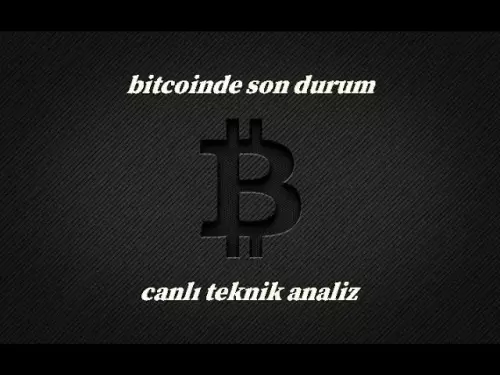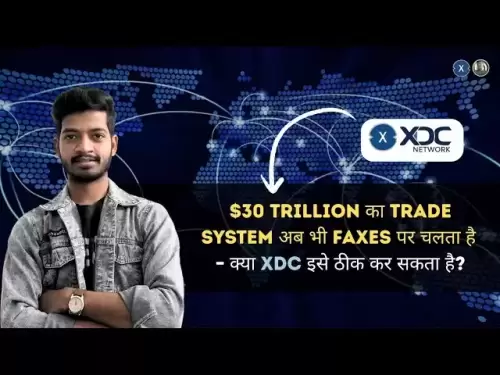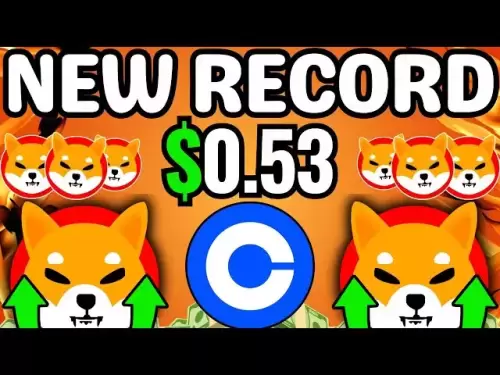-
 Bitcoin
Bitcoin $117,909.7654
0.19% -
 Ethereum
Ethereum $2,959.0750
0.16% -
 XRP
XRP $2.7837
-0.29% -
 Tether USDt
Tether USDt $1.0002
-0.01% -
 BNB
BNB $688.6700
-0.46% -
 Solana
Solana $162.0212
-0.60% -
 USDC
USDC $0.9999
0.00% -
 Dogecoin
Dogecoin $0.1986
-1.86% -
 TRON
TRON $0.3013
-0.72% -
 Cardano
Cardano $0.7267
0.75% -
 Hyperliquid
Hyperliquid $47.7796
3.33% -
 Stellar
Stellar $0.4384
14.09% -
 Sui
Sui $3.4246
0.55% -
 Chainlink
Chainlink $15.2028
-0.09% -
 Bitcoin Cash
Bitcoin Cash $507.0546
-2.02% -
 Hedera
Hedera $0.2123
7.77% -
 Avalanche
Avalanche $21.0986
1.80% -
 UNUS SED LEO
UNUS SED LEO $9.0758
-0.01% -
 Shiba Inu
Shiba Inu $0.0...01323
-0.16% -
 Toncoin
Toncoin $3.0025
0.66% -
 Litecoin
Litecoin $94.1887
0.96% -
 Polkadot
Polkadot $3.9479
-0.03% -
 Monero
Monero $334.6755
0.94% -
 Dai
Dai $0.9999
0.00% -
 Uniswap
Uniswap $8.4746
-0.81% -
 Ethena USDe
Ethena USDe $1.0006
-0.02% -
 Pepe
Pepe $0.0...01236
0.49% -
 Bitget Token
Bitget Token $4.3803
-0.28% -
 Aave
Aave $302.0114
0.90% -
 Bittensor
Bittensor $389.5186
-0.84%
How to get a job as a smart contract developer?
A smart contract developer writes, tests, and deploys self-executing contracts on blockchains like Ethereum or Solana using languages such as Solidity, Vyper, or Rust.
Jul 12, 2025 at 02:35 am
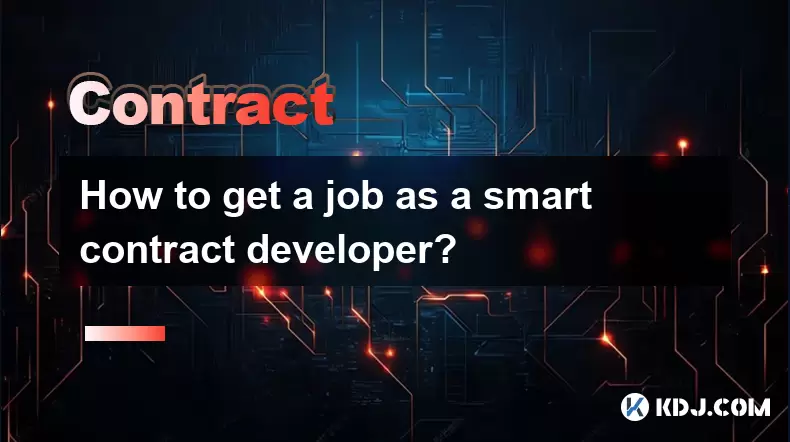
Understanding the Role of a Smart Contract Developer
A smart contract developer is responsible for writing, testing, and deploying self-executing contracts on blockchain platforms such as Ethereum, Binance Smart Chain, or Solana. These contracts are written in specific programming languages like Solidity, Vyper, or Rust. The role requires a deep understanding of blockchain mechanics, cryptographic principles, and decentralized application (dApp) development.
To become competitive in this field, it’s essential to grasp the fundamentals of blockchain technology, including consensus mechanisms, transaction validation, and gas fees. Understanding how smart contracts interact with wallets, decentralized exchanges, and other dApps is also crucial.
Educational Background and Prerequisites
While formal education isn’t always mandatory, having a background in computer science, software engineering, or mathematics provides a strong foundation. Many successful smart contract developers begin by studying data structures, algorithms, and object-oriented programming.
Before diving into smart contract development, you should be proficient in at least one high-level programming language such as JavaScript or Python. This helps in grasping syntax patterns and logic that are transferable to languages like Solidity. It's also beneficial to learn about web3 technologies, including Web3.js or Ethers.js, which are used to interact with blockchain networks from front-end applications.
Learning Smart Contract Programming Languages
The most widely used language for smart contract development is Solidity, designed specifically for the Ethereum Virtual Machine (EVM). To get started, you can explore free resources such as:
- Solidity documentation
- CryptoZombies, an interactive tutorial
- Remix IDE, an online compiler and debugger
Other languages like Vyper (Python-like) and Rust (used in Solana and Polkadot ecosystems) are gaining traction. Each has its own unique features and security considerations, so choosing one depends on your target blockchain platform.
It's important to practice writing simple contracts like token transfers, voting systems, and ownership controls. Always test your code in a sandboxed environment using tools like Ganache or Hardhat before deploying to a live network.
Gaining Practical Experience
Hands-on experience is critical. Start by building small projects that simulate real-world use cases. For example:
- A decentralized crowdfunding platform
- A token swap contract
- An NFT minting dApp
Contributing to open-source blockchain projects on GitHub is another way to gain visibility and improve your coding skills. You can also participate in hackathons or bug bounty programs hosted by platforms like Gitcoin or Immunefi.
Deploying your contracts on testnets like Ropsten or Goerli allows you to understand gas optimization, error handling, and interaction with wallet providers like MetaMask. Don’t forget to audit your code manually or use automated tools like Slither or MythX to identify vulnerabilities.
Building a Professional Profile and Network
Creating a strong GitHub profile with well-documented repositories is essential. Employers often review your code to assess your understanding of best practices, security patterns, and clean architecture.
Engaging with the blockchain community through forums like Reddit, Discord groups, and Telegram channels can lead to mentorship opportunities and job leads. Platforms like LinkedIn and Twitter are useful for showcasing your achievements, sharing tutorials, and following industry trends.
Consider publishing articles or technical write-ups on platforms like Medium or Dev.to. Writing about topics like common smart contract vulnerabilities or upgrading contract patterns demonstrates expertise and passion.
Job Search Strategies and Interview Preparation
Start by applying to roles listed on crypto-specific job boards such as:
- Crypto Jobs List
- AngelList Crypto
- RemoteOK Blockchain Jobs
Many startups and established firms post openings directly on their websites or social media pages. Be sure to tailor your resume to highlight relevant projects, tools, and frameworks you've worked with.
Prepare for interviews by reviewing:
- Common Solidity interview questions
- Security best practices
- Code reviews and debugging exercises
Some companies may ask you to complete a technical challenge or write a smart contract under time constraints. Practicing these scenarios beforehand will increase your confidence and performance.
Frequently Asked Questions
What certifications are valuable for smart contract developers?
Certifications like Certified Solidity Developer (CSD) from ConsenSys or Blockchain Council's certification add credibility. However, practical experience and a strong portfolio often outweigh formal certifications in this space.
Do I need to know cryptography to become a smart contract developer?
While not mandatory, a basic understanding of asymmetric encryption, hashing, and digital signatures is highly beneficial. These concepts are frequently encountered when working with wallet integrations and secure contract design.
How long does it take to become a competent smart contract developer?
With consistent learning and practice, it typically takes 6–12 months to build deployable contracts. Mastery comes with time and exposure to complex projects and real-world audits.
Is it possible to transition into smart contract development from a non-tech background?
Yes, but it requires dedication to learning programming fundamentals first. Begin with general-purpose languages like JavaScript or Python, then progress into blockchain-specific tools and languages.
Disclaimer:info@kdj.com
The information provided is not trading advice. kdj.com does not assume any responsibility for any investments made based on the information provided in this article. Cryptocurrencies are highly volatile and it is highly recommended that you invest with caution after thorough research!
If you believe that the content used on this website infringes your copyright, please contact us immediately (info@kdj.com) and we will delete it promptly.
- Bitcoin Rally, Satoshi Nakamoto, and the Richest Elite: A New World Order?
- 2025-07-13 12:30:12
- Mining, BDAG, LTC Outlook: What's Hot and What's Not?
- 2025-07-13 12:30:12
- Web3 Gaming: Explosive Growth Forecast to 2032 – But Can It Overcome the Hurdles?
- 2025-07-13 12:50:11
- XRP Price, Wallet Growth, and Whale Bets: Decoding the Momentum
- 2025-07-13 12:50:11
- Arctic Pablo Coin: Is This Presale the Next High ROI Meme Coin?
- 2025-07-13 12:55:12
- Bitcoin Price, Leveraged Futures, and Traders Increase: A NY Perspective
- 2025-07-13 12:55:12
Related knowledge

Psychology of trading Bitcoin contracts
Jul 13,2025 at 02:50am
Understanding the Emotional Rollercoaster of Bitcoin Futures TradingBitcoin contract trading, especially in the form of futures, introduces a high lev...
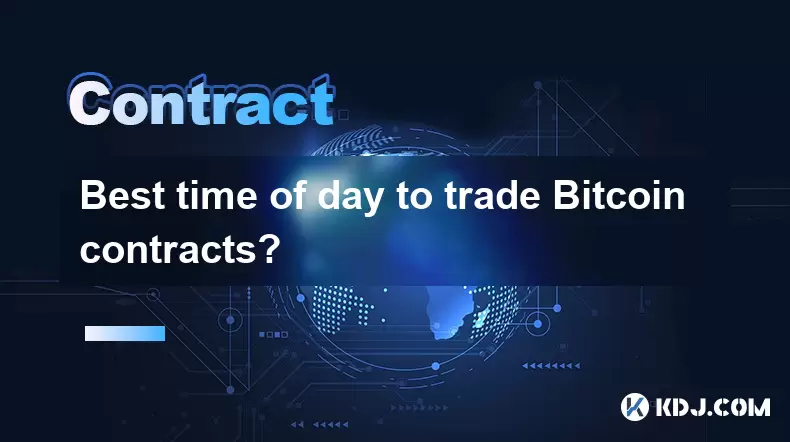
Best time of day to trade Bitcoin contracts?
Jul 13,2025 at 05:29am
Understanding Bitcoin Contracts and Their VolatilityBitcoin contracts, particularly futures contracts, are derivative instruments that allow traders t...
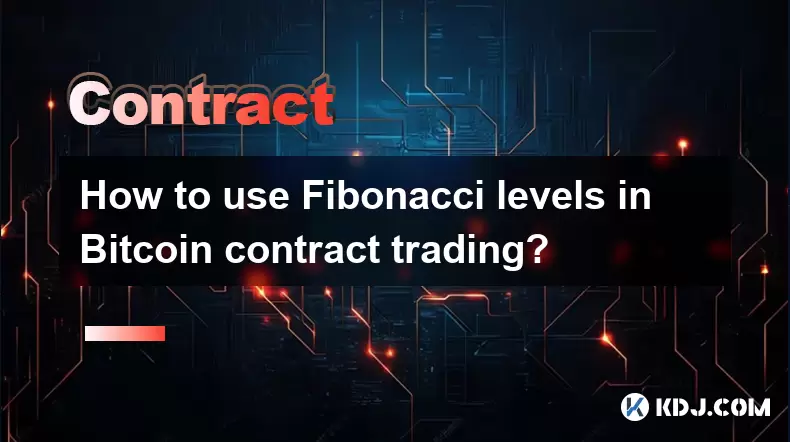
How to use Fibonacci levels in Bitcoin contract trading?
Jul 13,2025 at 08:07am
Understanding Fibonacci Levels in TradingFibonacci levels are a technical analysis tool used by traders to identify potential support and resistance z...
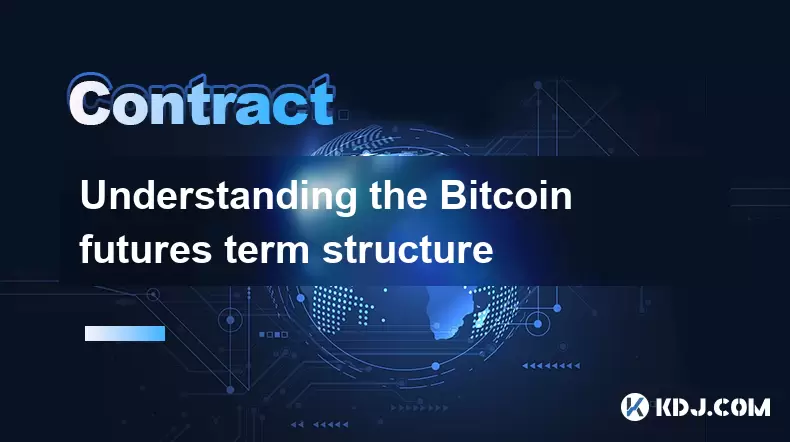
Understanding the Bitcoin futures term structure
Jul 13,2025 at 08:28am
What is Bitcoin Futures Term Structure?The Bitcoin futures term structure refers to the relationship between the prices of Bitcoin futures contracts w...

What are the trading hours for Bitcoin futures?
Jul 13,2025 at 12:14pm
Understanding Bitcoin Futures Trading HoursBitcoin futures are derivative contracts that allow traders to speculate on the future price of Bitcoin wit...
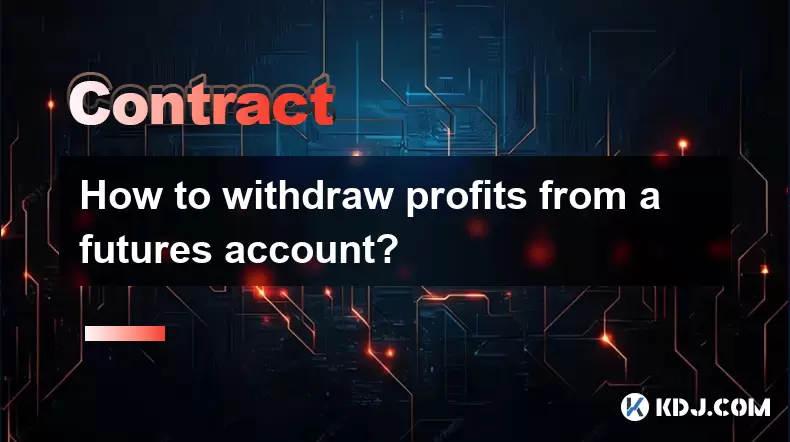
How to withdraw profits from a futures account?
Jul 13,2025 at 07:07am
Understanding Futures Accounts and Withdrawal MechanicsIn the cryptocurrency space, a futures account is used to trade contracts that derive their val...

Psychology of trading Bitcoin contracts
Jul 13,2025 at 02:50am
Understanding the Emotional Rollercoaster of Bitcoin Futures TradingBitcoin contract trading, especially in the form of futures, introduces a high lev...

Best time of day to trade Bitcoin contracts?
Jul 13,2025 at 05:29am
Understanding Bitcoin Contracts and Their VolatilityBitcoin contracts, particularly futures contracts, are derivative instruments that allow traders t...

How to use Fibonacci levels in Bitcoin contract trading?
Jul 13,2025 at 08:07am
Understanding Fibonacci Levels in TradingFibonacci levels are a technical analysis tool used by traders to identify potential support and resistance z...

Understanding the Bitcoin futures term structure
Jul 13,2025 at 08:28am
What is Bitcoin Futures Term Structure?The Bitcoin futures term structure refers to the relationship between the prices of Bitcoin futures contracts w...

What are the trading hours for Bitcoin futures?
Jul 13,2025 at 12:14pm
Understanding Bitcoin Futures Trading HoursBitcoin futures are derivative contracts that allow traders to speculate on the future price of Bitcoin wit...

How to withdraw profits from a futures account?
Jul 13,2025 at 07:07am
Understanding Futures Accounts and Withdrawal MechanicsIn the cryptocurrency space, a futures account is used to trade contracts that derive their val...
See all articles





















